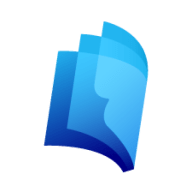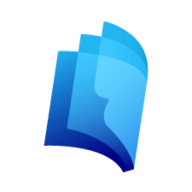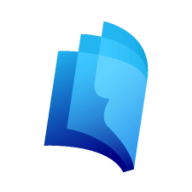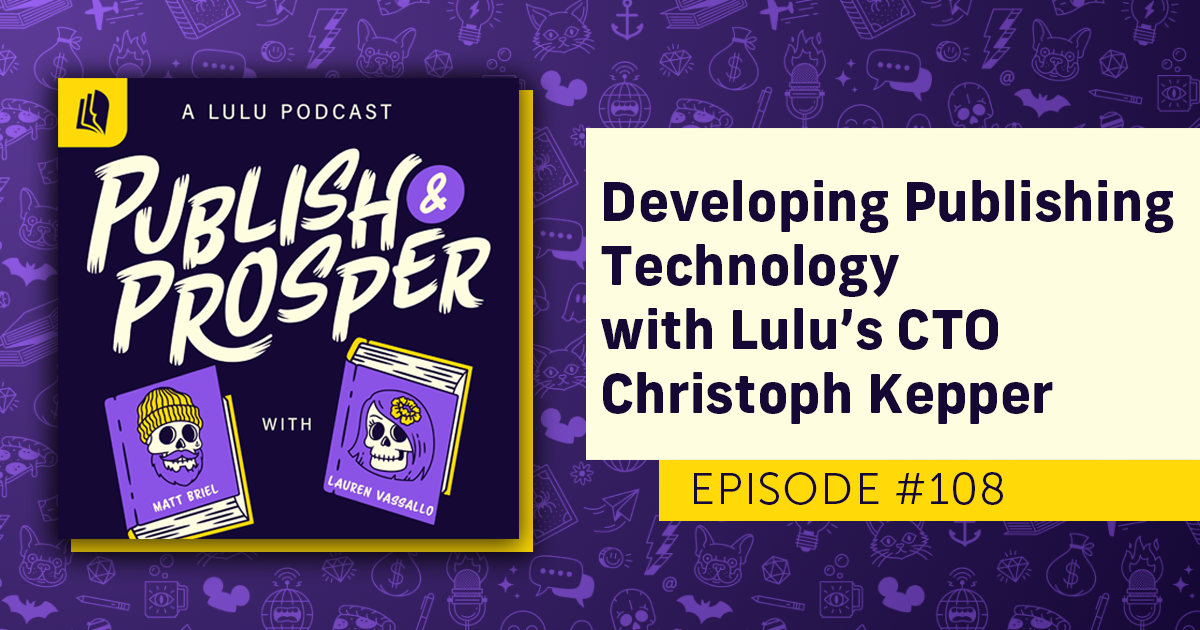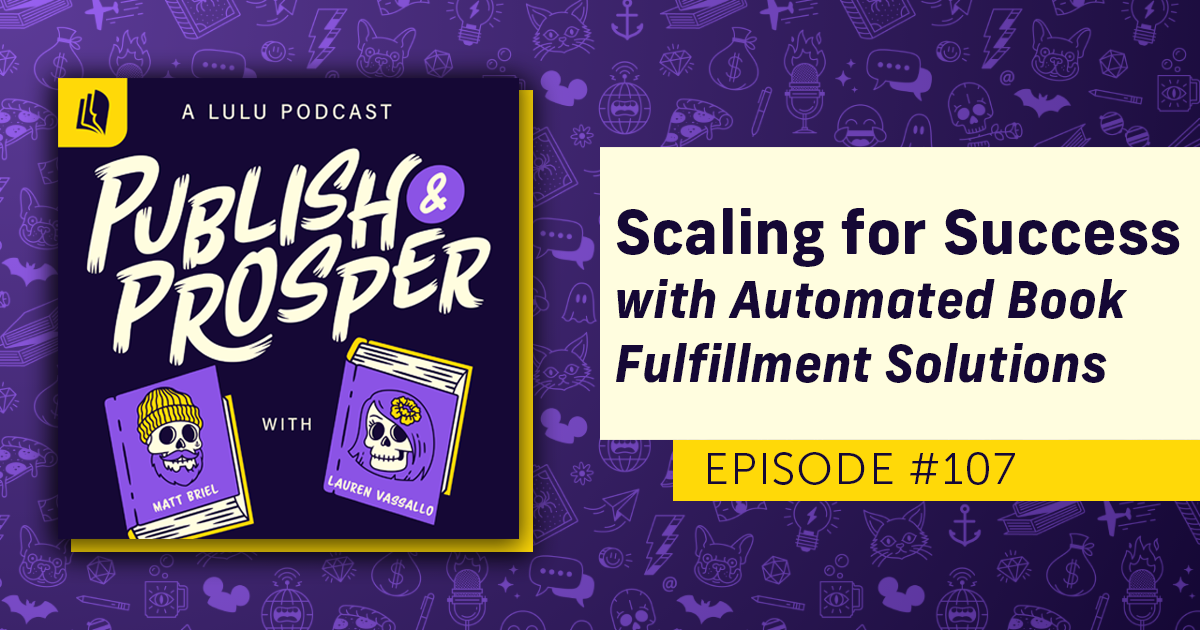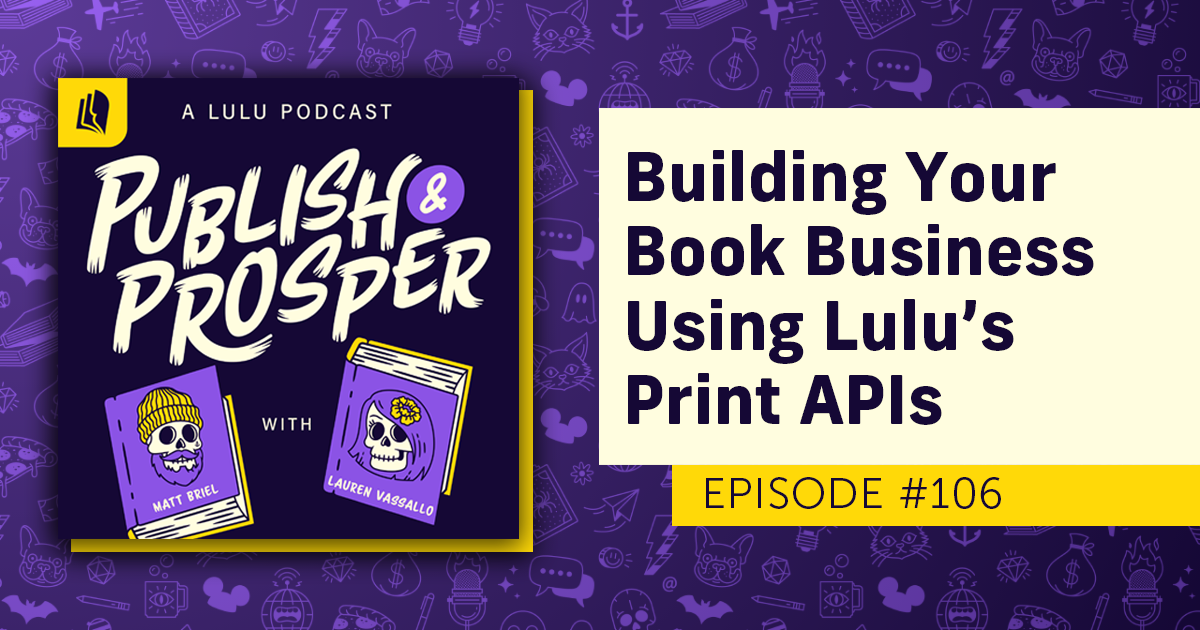How to Reach a New Audience with a Book Based on Your Podcast
Podcasts are an insanely popular way to share your content with your fans. Last year alone podcasts attracted more than 424.2 million listeners per year.
Every expert prediction indicates podcasts are a popular and growing way to reach an audience. And content creators agree, as about 1 in 3 creators create podcasts.
If you’re one of those creators who already have a podcast or have a new one in the works, I’m here today to tell you why turning your podcast into a book is an intelligent (and relatively easy) decision.
Why You Should Publish a Book
Your podcast likely started because you needed a way to share your content or knowledge with your audience.
Putting in the work to build credibility as a podcaster will earn you a following. But once you’ve got all those people’s attention you need to look for ways to leverage that podcast content to make some money.
A key part of your podcast content strategy has to be monetizing. You can directly ask for donations or add subscriptions for extra podcast content. But you should also be thinking about ways to repurpose what you’ve already got to create new ways to earn money and reach audiences.
The three most common ways to repurpose your podcast and turn content into cash are:
- Leveraging the credibility to sell consulting services
- Creating a paid course for access to more advanced knowledge
- Publishing a book from your podcast content
Obviously, we’re going to focus on that last one. But remember that you can mix and match. Maybe you release a few paid courses and one book each year.
For books, you need to think first about your audience. You know they have the attention span for long-form content and they like what you have to say. It’s not hard to envision podcasters as authors; you’re doing many of the same things but delivering your content through a different medium.
Your book becomes a great way to reach a broader audience. The overlap between podcast listeners and readers is not 100%. Writing a book based on your podcast is a huge opportunity to use the content you already have to reach a broader audience of new fans.

Your Free Lulu Account
Create a Lulu Account today to print and publish your book for readers all around the world
Turning Podcast Content Into a Book
The first step is to review your published podcast episodes. Look for a few metrics:
- Total listens/downloads
- Comments and reactions from listeners
- Engagement on social posts or emails
You need to find your most popular content and look for a common thread that will become the theme of your book. As you look at your most popular and commented-on episodes, that theme will likely become obvious.
Don’t overcomplicate this either. You might only need a few episodes to start your book idea. If you’re willing to do some writing, you can expand a piece of content from your podcast to make a full book.
A great example of this is the popular fiction podcast Welcome to Night Vale. The podcast is a regular NPR-style radio show from a fictional (and fantastical) desert town. Their first book wove a story between some of the recurring characters from multiple episodes.
Since then, they published multiple additional novels, most of which take a unique character or plot arc and drill down to explore the story we could only see at a glance in the podcast.
Another popular example is John Green’s The Anthropocene Reviewed, a series that reviews different aspects of the modern geological age (which is what Anthropocene means). After producing a wealth of episodes, the author turned some of the most popular into a new book.
Green is most well-known as a fiction author, but by creating a podcast (as well as video projects), he brings in an even wider audience. Taking the content created for that wider audience and bringing it back to his reader audience is a powerful way to further promote his best content.
Once you’ve narrowed it down to a few episodes that resonate with your fans and share a common theme, you’re ready to start writing your book!
How to Write a Book From a Podcast
With a list of episodes that support your podcast book idea, you’ll want to retrieve your audio files and transcribe them. This is (potentially) the hardest part of podcast content repurposing. Audio is historically difficult to turn into other forms because transcribing is tedious and time-consuming.
Podcast To Book Transcribing
Fortunately, modern AI tools exist to make that part of the process much (much) easier. One example is Descript, an AI scriptwriter that automatically transcribes your podcasts and provides tools to easily add visuals and edit the content. If you do video recordings, the AI video editor VEED is another great way to work with your transcript.
Once the transcriptions are complete, you’ll need to edit the episodes together. Put all the transcripts into a Doc and start organizing them. Work on editing them together too—you need to think about your target audience (who will differ from your podcast audience, at least slightly) and the tone of your book.
Editing Your Transcript
The first time you work through your book’s document, be hyper-aware of tone and consistency. Take the time to write new sections to tie the episodes together. Also, look at the transcribed text and make sure it still works for a reader. Colloquialisms, abbreviations, and other common speech patterns don’t always work for the written word.
You should hire an editor. That holds true for anyone creating a book, but the nature of turning existing content into a book requires a lot of reworking and revising. This makes having a dispassionate, outsider’s perspective extra important when creating your book.
Book Layout and Design
Once you’ve thoroughly edited and reviewed your content, you’re ready to lay out each chapter as a page in InDesign (or another page design program). You’ll need to include all the elements of a book, like the front and back matter. Just like having the right equipment is key for a successful podcast, you need a professional book design for a successful book.


If you’re new to book design, here are a few important things to remember:
- Use A Template – Always start from a template provided by your printer. The correct margins, bleeds, and page sizes is absolutely necessary to ensure your book prints the way you want.
- Header & Footer – This is where your page numbers will live, along with other content like your name, the book’s title, or the chapter title. Header & Footer content is expected in a book and can be challenging to perfect when laying out your pages.
- Think For Print – What looks good on your screen may not print very well. Take some time to learn the best practices for printing from a PDF before you create your book.
A professional page layout is vital to your book’s success. When a book looks self-published, readers can tell. With the way content creators have embraced self-publishing, the new normal is highly professional and well-designed.
Self-Publishing for Podcasters
The book is done! You’ve designed it and it’s ready to publish. You could look to traditionally publish, but that’s really not the best option for most creators. When you use a self-publisher like Lulu, you just need:
- A print-ready PDF for your interior and cover
- The metadata for your book (like the title, authors, copyright, and ISBN)
After that, you’re ready to create a Lulu account, upload your files, select your sales channels, and start promoting your book!
Learn More About Metadata
When it comes to selling your book, self-publishing (with Lulu, of course) offers three valuable options:
- Direct Sales – If you’ve got a website, you’ve got a webstore. Selling directly to your fans means you earn more money and can gather valuable customer data. Lulu makes it easy with our free Lulu Direct integrations.
- Lulu Bookstore – We host a bookstore exclusively for books published using Lulu. The revenue share is 80/20 for print books and 90/10 for ebooks, meaning you’ll earn more than selling on Amazon or Barnes & Noble. Perfect if you don’t have your own website for direct sales (yet).
- Global Distribution – Finally, the necessary evil that is Amazon. You’ll earn book sales from retail sites, particularly if you already have an audience. Our distribution service does just that, making it easy to track all your sales through your Lulu dashboard.

Create Your Book
Use Lulu's free templates to easily create and publish your book today.
Marketing Strategies for Your Book
You’ve already got a successful podcast, so you have a sense of how important it is to market yourself. Luckily, marketing your book is pretty similar to podcast marketing. You’ll need to cultivate a community of fans on social media, through your email list, and through interviews and in-person events.
Cross-promotion will be important too. Advertise your book on your podcast. Provide a link or QR code in your book so readers can find your podcast.
Make use of your social media platforms too. Look to the community you’ve built around your podcast, whether that’s a Facebook Group or a Discord server. They’re an ideal audience for all the phases of your book. Promote with your fans early—take a poll about cover designs or share teasers when you’re close to publishing. Once the book is available, those fans will be the first ones to buy and the best word-of-mouth promoters you can hope for.
Podcast fans like long-form content and they like storytelling. Those same attributes will carry over to your book, creating a lot of overlap in your audiences.
The goal is to monetize your podcasts through books, but you’ve also got an opportunity to expand on your content and offer more in-depth information or commentary.
Your podcast transcript and book’s manuscript don’t have to stop there either. You could make a variety of social posts, YouTube videos, or blog posts from the content you’ve gathered. Maybe your content is educational and you can turn those podcasts into a paid course.
Multi-purposing and reusing content is a terrific marketing strategy to save you time and get the most from the content you create.

The Value in Repurposing Content
The moral of the story is that you can and should repurpose your content. A podcast is a terrific way to reach your audience, but the content you create for your podcast can have a variety of other applications.
A book is the perfect method to monetize your podcast content and bring a new audience of dedicated fans.


